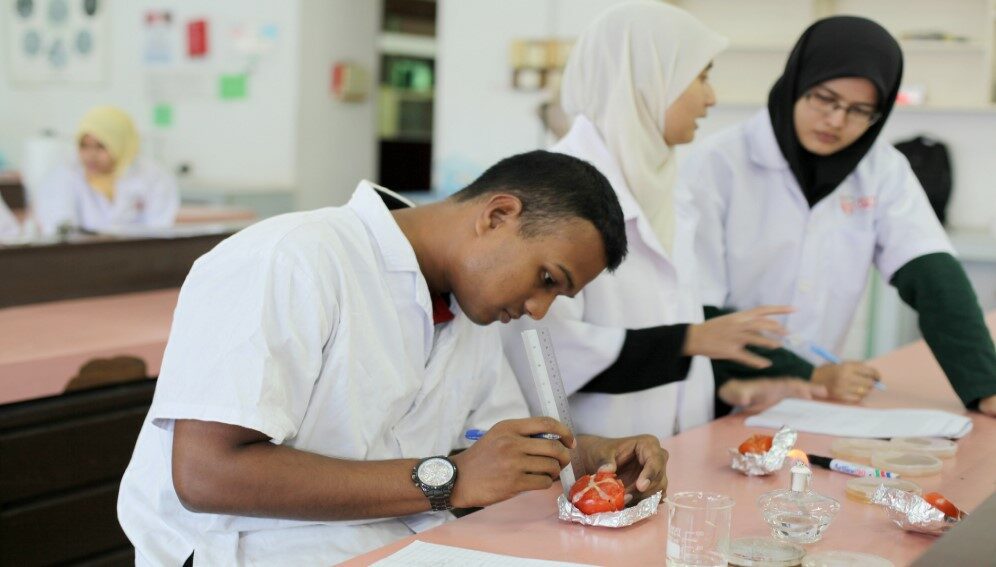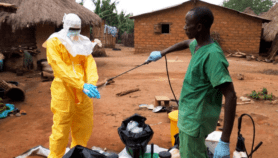31/12/21
Strengthening scientific research in Africa

By: Gilbert Nakweya
Send to a friend
The details you provide on this page will not be used to send unsolicited email, and will not be sold to a 3rd party. See privacy policy.
[NAIROBI] Low scientific research from Africa focusing on the continent’s problems has been on the spotlight for long but the COVID-19 pandemic has exposed this problem in black and white.
The COVID-19 pandemic has brought to the fore more clearly the reality of weak research systems in Africa, especially when the world turned to the search for vaccines to curb the spread of the virus, according to the inaugural virtual Conference on Public Health in Africa (CPHIA) held this month (14-16 December).
The WHO says that Africa represents 14 per cent of the world’s population but has less than one per cent of vaccines produced globally. The UN body projects that 25 per cent of the global population will live in Africa by 2050.
“Africa needs to draw lessons from COVID-19 and build a culture of research for manufacture of vaccines and other critical medical and pharmaceutical.”
Gilbert Nakweya, Journalist
While making a presentation at a session of CPHIA, Helen Rees, executive director, Reproductive Health and HIV Institute at South Africa’s University of Witwatersrand, said that majority of COVID-19 research comes from developed nations, especially in Europe with very little contribution from Africa.
The conference hosted by the African Union (AU) and the Africa Centres for Disease Control and Prevention gave a platform to participants to collaborate on research, innovation, and public health in Africa to accelerate progress in the fight against COVID-19, while finding solutions to other critical health emergencies such as HIV/AIDS, TB, and malaria.
Panellists and participants on a parallel session on vaccine research in Africa observed that over-reliance on donor vaccines in the continuing COVID-19 pandemic is erratic.
For instance, they said some of the COVID-19 vaccines donated to African countries could expire before being administered because of logistical hitches.
But for Africa to fight the pandemic and prepare for future pandemics, I am persuaded that the continent needs a vibrant vaccine research and manufacturing capacity to become self-sufficient.
This is also in line with AU’s goal of ensuring that 60 per cent of vaccines in Africa are manufactured locally by 2040. Like the panellists, I believe that this goal is achievable but only if governments support local manufacturing through formation and support of regional manufacturing hubs and deepening of scientific knowledge on technology to attract investment.
Morena Makhoana, Biovac CEO, said that governments, academic institutions and the private sector need to use the next three to five years lessons from COVID-19 to build a sustainable business of manufacturing vaccines and other pharmaceuticals locally. “This is achievable if we convert the pandemic focused manufacturing efforts to routine efforts so that we can also focus on other diseases,” Makhoana said.
But Stavros Nicolaou, senior executive responsible for strategic trade development, Aspen Pharmacare Group, added that Africa cannot wait and should therefore swing into action and build local capacity for vaccine manufacturing now.
“We are a continent that is good at discussing policies like building local capacity to solve local problems but not acting to implement them,” said Nicolaou, challenging African governments to invest more in local capacity building instead of importing vaccines and other pharmaceuticals.
From the conference, it became quite clear to me that Africa needs to draw lessons from COVID-19 and build a culture of research for manufacture of vaccines and other critical medical and pharmaceutical products.
The pandemic has shown us that building local capacity is one of the main ways out for the continent, especially during health emergencies. We need to walk the talk, build necessary skills and infrastructure that can spur vaccine research and manufacturing in Africa.This piece was produced by SciDev.Net’s Sub-Saharan Africa English desk.













